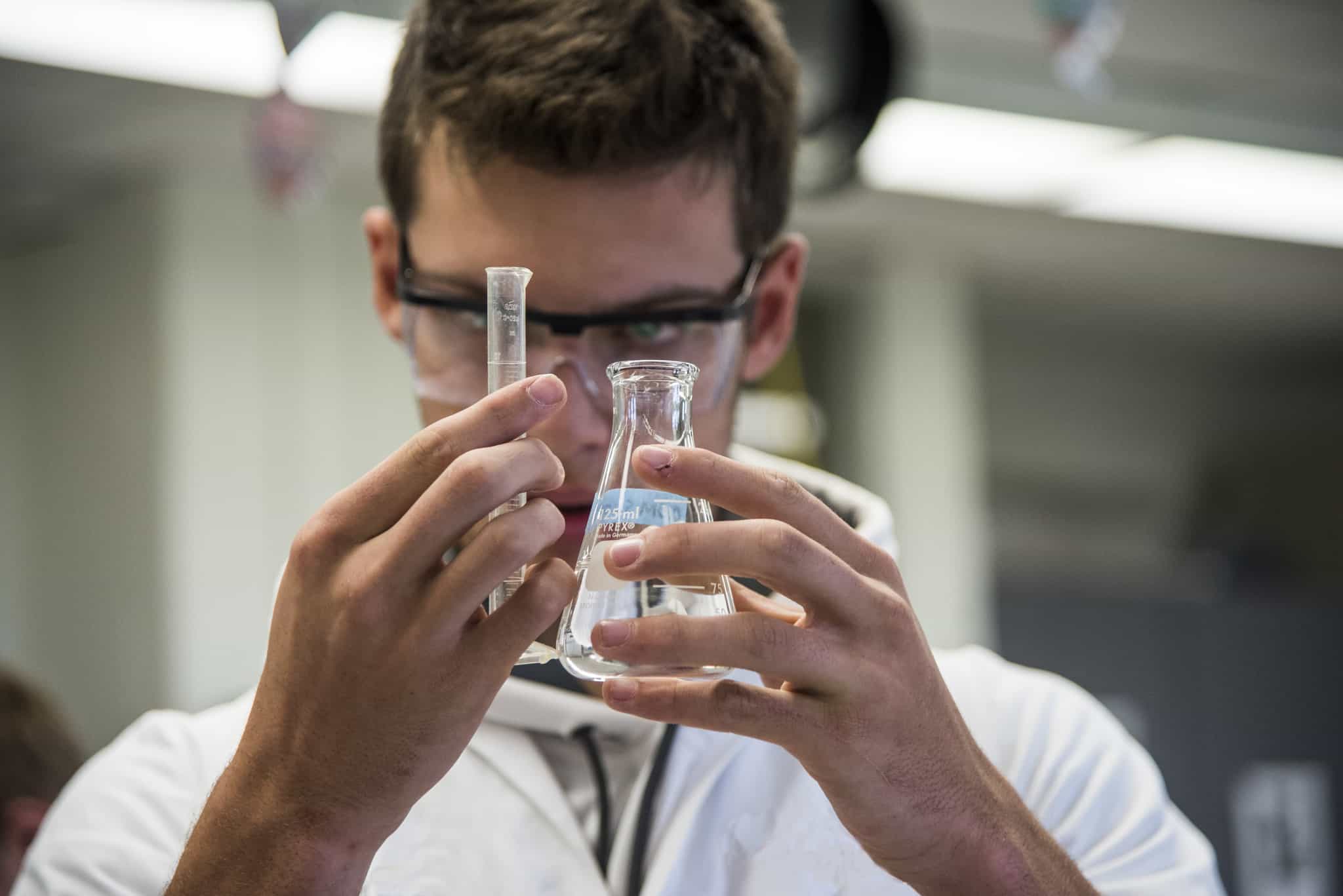- Wear proper eye protection at all times during laboratory activities. Consult with your instructor about your use of contact lenses. Know the location of eye wash equipment.
- Securely tie hair that reaches to the shoulders. Remember that hair is very flammable.
- No eating, drinking, or gum chewing in the laboratory. Dangerous chemicals may get in your mouth. Never taste anything in the laboratory unless specifically instructed to do so by your teacher.
- No chemicals are ever to be taken from the laboratory.
- Do only the experiments assigned and in the manner prescribed. Unauthorized experiments are prohibited.
- Never engage in horseplay or practical jokes. This is when injuries occur.
- Footwear that completely covers the foot is highly recommended.
- Avoid inhaling chemical fumes and filling pipettes by mouth. Consider ALL chemicals dangerous unless they are known to be otherwise.
- The teacher is to be notified immediately in case of an accident, no matter how trivial it may appear.
- Know the locations of the fire extinguisher, fire blanket, eyewash, safety shower, first aid kit, lab aprons, goggle cabinet, fire exits, and fire alarm pulls.
- Notify your instructor immediately of any spills on your clothing.
- Do not use the sink to discard matches, filter paper, or insoluble solids. Use the appropriate waste containers that are provided.
- Do not return chemicals to their original containers unless you are specifically instructed to do so.
- Never point the open end of a test tube that is being heated at yourself or others.
- Always dilute acid by adding the acid to water.
- Many chemicals are poisonous and you are expected to wash your hands after you work in the lab and before you leave the lab to prevent accidental ingestion of the chemicals.
- Ask questions if you do not understand something. We learn by inquiry.
- Be aware that some of the materials that you will be working with can damage your clothes and body tissues. Work in a responsible way.
- Treat any living organisms humanely and any preserved specimens with respect.
- You are responsible for any damage you cause to the text, computers, lab equipment, or property owned by your classmates.
- Always follow all safety rules and instructions given by your instructor.
- Let your instructor know if you are color blind.
- Let your instructor know if you have any allergies. Give your instructor a list of specific allergies.
- Use common sense and your powers of observation and reasoning.
THINK SAFE – ACT SAFE

